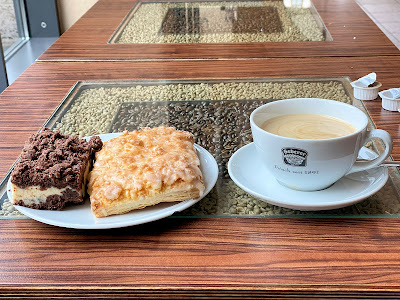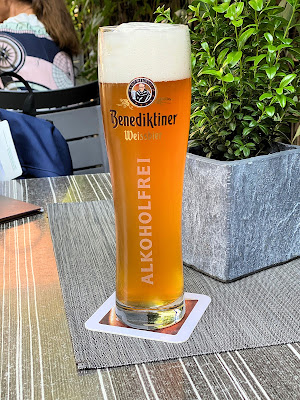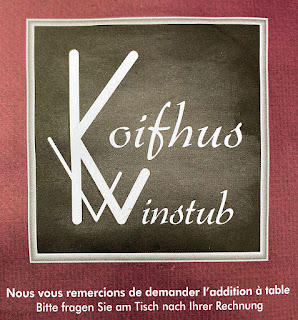Heintz writes of a world crisis "that stems from the growing obsolescence of three core operating systems that have shaped civilization for the past 350 years: capitalism, fueled by carbon since the dawn of the Industrial Age and increasingly driven by global financialization, the nation-state system, formalized by the Treaty of Westphalia in 1648; and representative democracy, a system of self-rule based on Enlightenment ideals of freedom, fairness, justice, and equality." These three achievements so successful in the past turned out to be the nails in the coffin of western civilization.
Capitalism
Starting with the economy, Heintz states, "Our practice of capitalism is both putting the planetary ecosystem at risk and generating vast economic inequality." It all started in 19-century England with its industrialization based on burning coal, its ship industry sending steamboats into the four corners of the world, bringing back the products of their colonies. This capitalistic practice created a thin layer of rich people and a vast proletariat on the isle. At that time, Britannia ruled the waves and set, e.g., the pace in modern tourism. While other European countries were still struggling for their "place at the sun," British tourists had already climbed the mountains in then-poor Switzerland.
While today the differences in wealth are mitigated in developed countries - our workers are our consumers too; so they must earn more than just their livings - this inequality is exported to the developing countries. Today both societies face climate change, whereas Heintz states, "The nation-state is inadequate for managing such transnational challenges."
Global warming is a threat requiring a universal answer. Most countries are aware of this, but so far, most countermeasures promised were nothing more than declarations of intent. While the Corona pandemic shakes the world, we must understand that we are all in the same boat concerning the climate too.
Nationalism
Despite evoking European unity, we are amid a latent and surging nationalism brought to light by the Corona pandemic. Each nation fought the virus within its territory by closing its borders. My citizens first!
Heintz opened my eyes to the fact that nationalism is the product of the far-back Westphalian Peace Treaty of 1648. The concept that Catholic Richelieu had begun for the Gloire de la France - fighting the Catholic Habsburgs by pacting with the Lutheran Swedes - shapes the world until today. The cardinal justified his non-Catholic practice of waging war and sacrificing the lives of innocent people with a baffling statement, "The interests of a state and religion are completely different. Although the state must pursue Christian goals, it is a political entity without an immortal soul and can, therefore, do things that are not allowed to an individual Christian. Man's salvation is finally realized in the hereafter, so it is not surprising that God wants the individual to leave vengeance to Him ... But the states have no continuity after this world, so their salvation is now or not at all."
At the time of the Westphalian peace treaty, Germany did not exist. Instead, Germans lived in the heart of Europe in more than 1500 territories that Napoleon's rule reduced to 34 until, in 1871, Bismarck forced the German tribes into a Second Reich.
Heinrich Heine living in political exile moribund in his Matratzengruft (mattress crypt) in Paris, observed the struggle for German unity in 1848 and had a vision, "The Germans are working on their nationality, but are too late with that. By the time they have completed it, the nationality system in the world will have ceased to exist, and they will have to give up their nationality right away, without having benefited from it like the French or the British."
Here he was not right, for a political European Union is still wishful thinking and remains a vision.
Democracy
Finally, Heintz is exceptionally critical of democracy, "Representative democracy is neither truly representative nor very democratic as citizens feel that self-rule has given way to rule by corporations, special interests and the wealthy."
In a recent article by George F. Will, Red Baron found the following statement about the 2016 elections in the US, "Never had both major parties offered nominees with higher disapproval than approval numbers. Voters chose what they wagered would be the lesser blight."
The choice seems easier in Germany with a spectrum of parties ranging from Die Linke (left) over the Greens (center) to the Alternative für Deutschland (AfD, right), where citizens, deceived by the ruling Grand Coalition of Christian Democrats (CDU) and Social Democrats (SPD), i.e., the two Volksparteien (major parties), frequently vote in protest for the candidates of the AfD.
I am not such a pessimist as Heintz, but it is true that democracy is and was never one hundred percent "democratic." Winston Churchill said in 1947, "No one pretends that democracy is perfect or all-wise. Indeed, it has been said that democracy is the worst form of Government except for all those other forms that have been tried from time to time …"
In my opinion, the biggest problem with democracy is that most people lack the understanding of the sometimes complicated issues at stake. This holds particularly for the most democratic practices as there are referenda or popular votes (Brexit?).
This is why in elections, many do not vote for a party platform but instead for a person. Strongly determining the number of votes for the party in Germany's federal elections, the person of Kanzlerkandidat (candidate for the chancellorship) is so important. An old slogan still frequently used is Auf den Kanzler kommt es an (All depends on the chancellor).
The problem of the now three Volksparteien is that the Social Democrats have no "valid" Kanzler personality in their ranks or der kann nicht Kanzler (he doesn't "know" chancellor).
The CDU is strengthened because of Angela Merkel's vigorous Corona crisis management and actually has four potential Kanzlerkandidaten, but no one is rocking. Although Merkel has excluded a fourth term as Germany's leader, calls for Mutti (a new matriarch) are becoming louder.
The Green party is led by a philosopher and an energetic lady. They may forward a candidate for chancellor, but to be successful, they should become the strongest party in the Bundestag (House of Representatives) in 2021. That is unlikely, taking the present wave of approval for our GOP, i.e., the CDU just became 75.
Yes, and there is the extra-parliamentary opposition. Protests articulated in demonstrations attended by sometimes thousands of persons in public squares - in principle impossible in times of Corona - have become more frequent in Germany. Red Baron shakes his head about people protesting that our democracy is in danger. The fact that they may exercise their right to demonstrate freely is proof that our democracy is working well.
*


















































